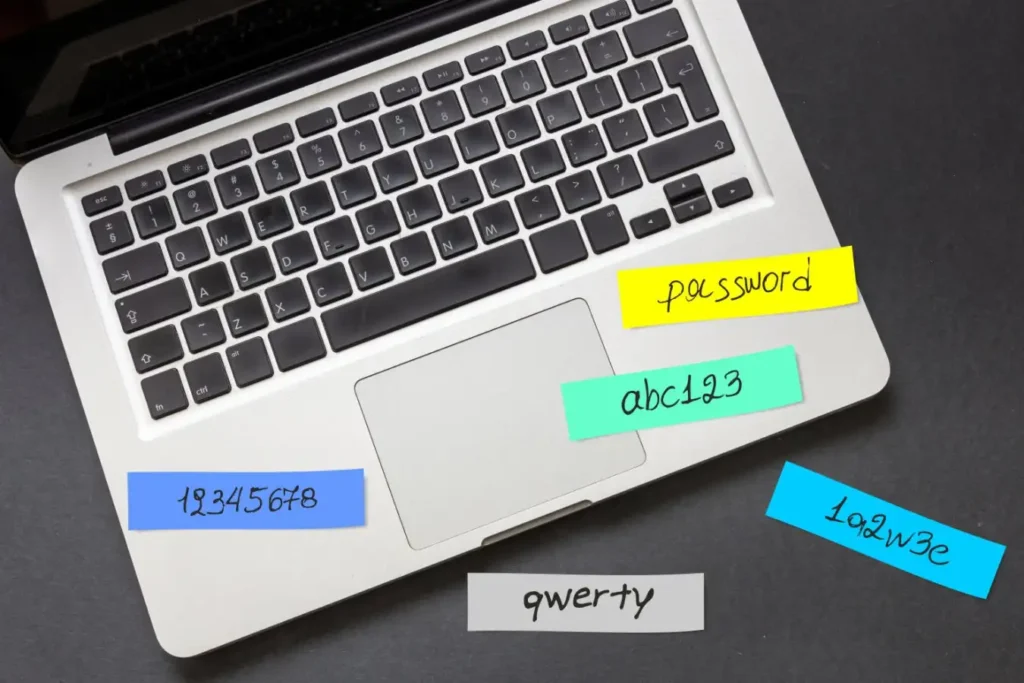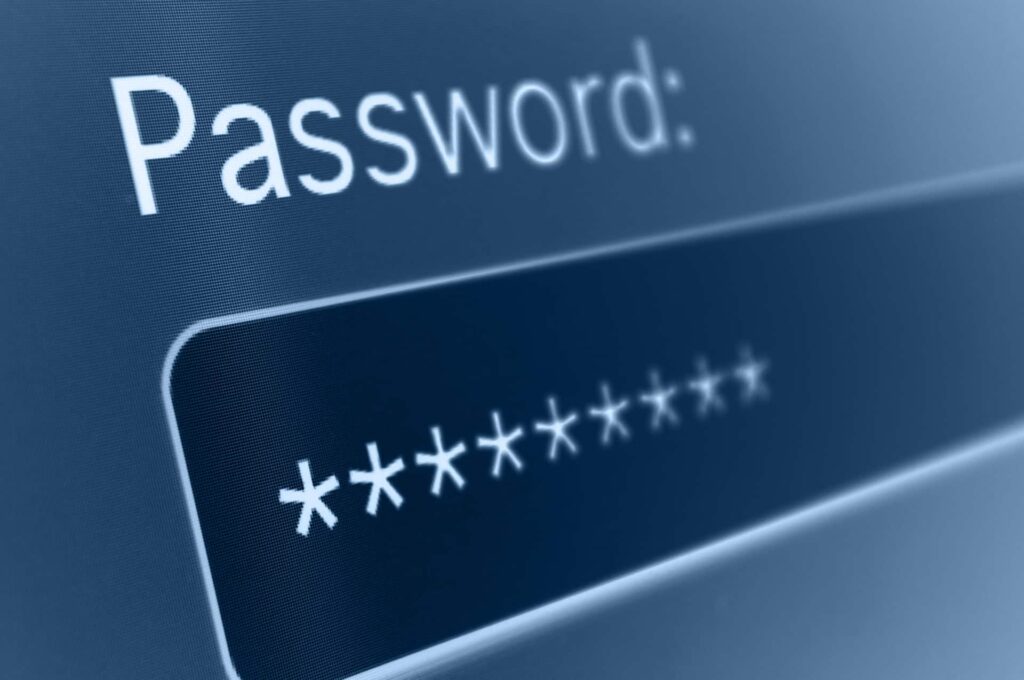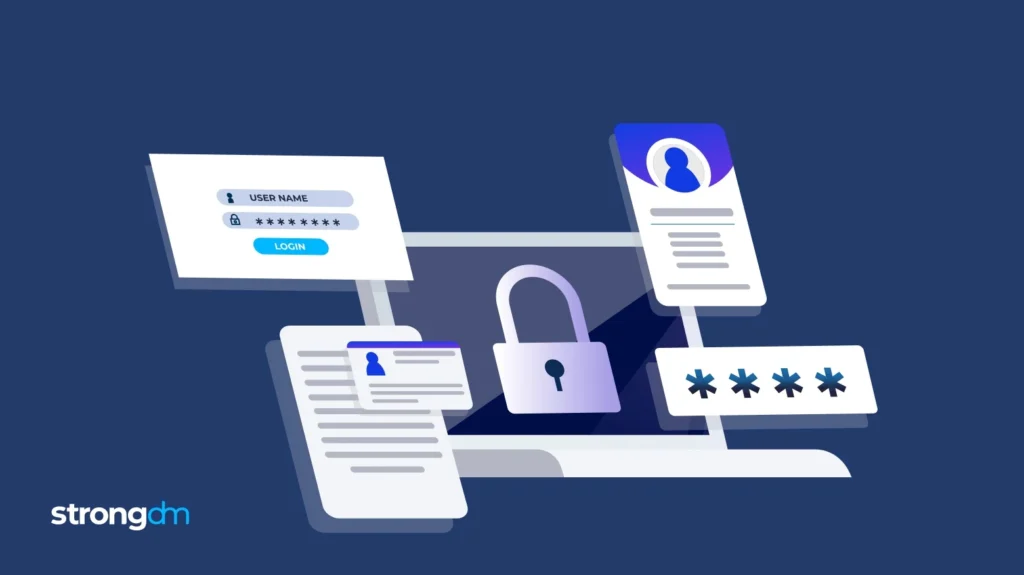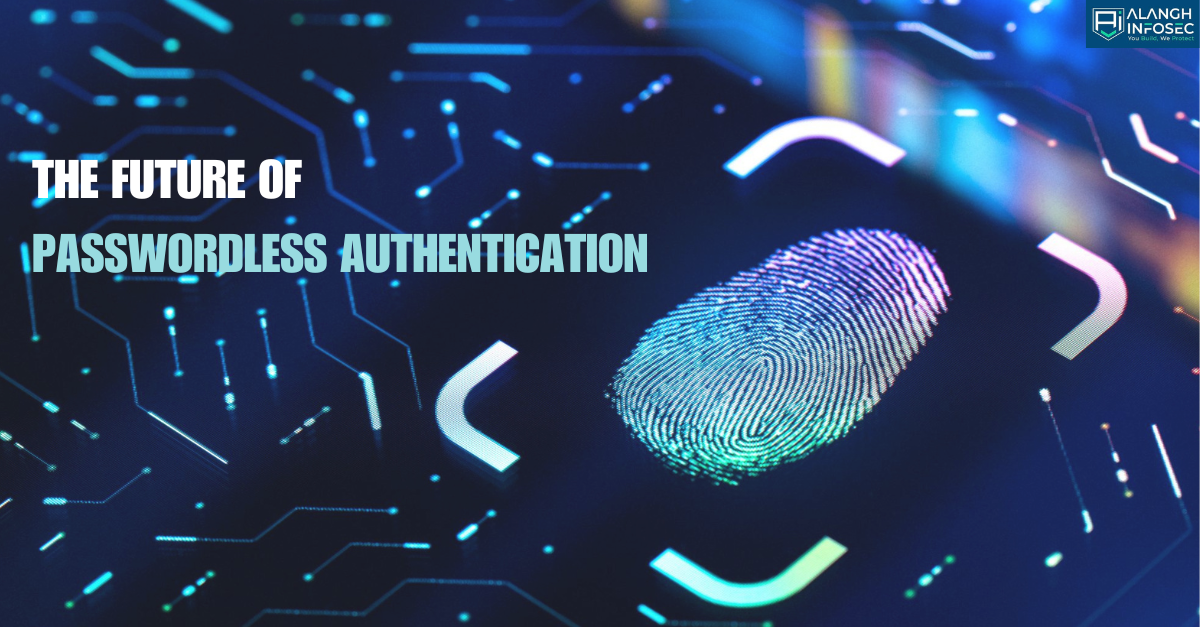Forcing people Certainly! The National Institute of Standards and Technology (INST) has recently advised against the practice of requiring users to change their passwords every few months. It has been found that this practice can lead to weaker and more easily compromised passwords. If you have been enforcing regular password changes, it may be beneficial to reconsider your approach to password security.
1. There has been research conducted on the effectiveness of forcing password changes.
Forcing people Recent research has shown that requiring regular password changes may not be as effective in enhancing security as previously thought. Organisations have historically enforced policies requiring users to change their passwords every 60 to 90 days in an effort to reduce the risk of compromised accounts. However, it has been found that these policies may not provide the expected level of security and could potentially lead to negative outcomes.
Frequent password changes can lead to users creating weaker, more predictable passwords as they often make only minor alterations to their existing passwords, or even recycle the same passwords across different accounts or platforms. This can increase security risks.

Additionally, frequently changing passwords can cause frustration for users and result in poor password management practices. Forcing people This can lead to users writing down their passwords in easily accessible locations or storing them in insecure files, which undermines the purpose of password security and can expose systems to potential breaches. .
Forcing people Based on recent findings, numerous cybersecurity experts are now advocating against the practice of frequent password changes as a best practice. Instead, they are promoting the use of strong, unique passwords that are more difficult to guess, along with additional security measures like multi-factor authentication (MFA). MFA enhances security by requiring users to verify their identity through a second factor, such as a fingerprint or a one-time code sent to their phone. This approach has been proven to greatly enhance security without the drawbacks of mandatory password changes.
Microsoft’s decision to remove password expiration policies from its baseline security guidelines in 2019 was based on their experience and research. They found that enforcing regular password changes was not providing the intended security benefits, as users were creating predictable password patterns. Forcing people By eliminating forced password changes, Microsoft shifted its focus toward encouraging strong passwords and implementing multi-factor authentication (MFA) to improve security. This case demonstrates that modern authentication methods are often more effective at preventing breaches than traditional password policies.
2. There are case studies available on companies that have abandoned forced password changes.
Forcing people Microsoft’s decision to remove password expiration policies in 2019 was based on their findings that regular password changes were not actually providing the intended security benefits. Instead, users were creating predictable password patterns, making it easier for attackers to guess or crack their passwords.Forcing people By eliminating forced password changes, Microsoft shifted its focus toward encouraging strong passwords and implementing multi-factor authentication (MFA) to improve security. This case demonstrates that modern authentication methods are often more effective at preventing breaches than traditional password policies.
Microsoft’s experience with password expiration policies is a notable example. In 2019, the company publicly announced that it was removing these policies from its baseline security guidelines. After years of enforcing regular password changes, Microsoft found that it was not providing the intended security benefits.Forcing people Instead, users were creating predictable password patterns, making it easier for attackers to guess or crack their passwords. By eliminating forced password changes, Microsoft shifted its focus toward encouraging strong passwords and implementing multi-factor authentication (MFA) to improve security. This case demonstrates that modern authentication methods are often more effective at preventing breaches than traditional password policies.
In 2017, the National Institute of Standards and Technology (INST) in the United States updated its digital identity guidelines, recognizing the negative impact of forcing users to regularly change their passwords. Instead, INST now recommends organizations abandon mandatory password resets unless there is evidence of a security breach. Their new approach emphasizes the use of long, complex, and unique passwords along with multi-factor authentication (MFA). This shift has been well-received by companies that have adopted these recommendations, as it has reduced the burden on users while maintaining a high level of security.

Forcing people Financial institutions are reevaluating their password policies, with some making changes to enhance security. One European bank conducted a study on the impact of eliminating forced password changes for its employees and system security. The study revealed that employees were more likely to use stronger passwords when not required to change them frequently. Forcing people Additionally, the adoption of Multi-Factor Authentication (MFA) helped further reduce the risk of potential breaches. This shift not only improved security but also led to a decrease in help desk requests related to forgotten passwords, resulting in a more efficient IT support system.
Forcing people The case studies show that there is a growing understanding that requiring regular password changes may not be the best approach to system security. Companies that have stopped this practice have noticed enhancements in both security and user convenience. Forcing people By prioritizing stronger, unique passwords and utilizing modern authentication methods like MFA, these organizations have been able to improve their overall security while decreasing the annoyance and inefficiency of frequent password resets.
Forcing people To sum up, the experiences of Microsoft, INST, and other organizations offer strong evidence that discontinuing forced password changes can result in improved security outcomes. Instead of following outdated policies, more companies are embracing modern approaches that prioritize both security and user experience.
3. Expert opinions have been shared on the negative impact of forced password changes.
Numerous cybersecurity experts have raised alarms about the potential negative consequences of requiring regular password changes, questioning the widely-held belief that frequent resets are necessary for maintaining security. These concerns are supported by a growing body of research indicating that mandatory password changes can actually weaken security and lead to unnecessary user frustration.
Experts have raised concerns that requiring users to change their passwords frequently can result in weaker password creation. When people are forced to update their passwords every few months, they often make small, predictable changes to their existing passwords, such as adding a number or changing a single character. This behavior can make the new passwords easier to guess or crack, which undermines the intended security benefits of password changes. Forcing people Cyber security expert Lorrie Faith Cyrano, a professor at Carnegie Mellon University, has pointed out that frequent password changes can lead users to prioritize memorability over strength, resulting in the use of simpler, less secure passwords. .

Forcing people Many experts suggest that regular password changes are no longer necessary in today’s security environment, as stronger authentication methods such as multi-factor authentication (MFA) provide more effective protection against unauthorized access. Research conducted by security professionals, including Alex We inert, Microsoft’s director of identity security, has shown that MFA significantly reduces the likelihood of account compromise, even if passwords are weak or exposed in data breaches. Therefore, implementing MFA is considered to offer greater security benefits than requiring frequent password changes.
Many experts in the field argue that the practice of requiring regular password changes is outdated, particularly in today’s security landscape where stronger authentication methods are available. For example, multi-factor authentication (MFA) offers an additional layer of security that is far more effective at preventing unauthorized access than relying solely on passwords. A number of security professionals, including Alex We inert, Microsoft’s director of identity security, have emphasized that implementing MFA offers greater protection than mandating frequent password changes. Inertness’s research has demonstrated that users who use MFA are significantly less likely to have their accounts compromised, even if their passwords are weak or exposed in data breaches.
Forced password changes may not be necessary in many cases if a password is strong, unique, and not compromised in a data breach. Security experts, such as Joseph Bonner from the University of Cambridge, argue that focusing on detecting compromised accounts may be more effective than requiring arbitrary password changes. Research by Bonner suggests that password expiration policies often provide little benefit unless there is a known risk of compromise.
In conclusion, cybersecurity experts are voicing growing concerns about the negative effects of mandatory password changes on both security and user experience. Many professionals agree that organizations should prioritize promoting strong, unique passwords and implementing advanced security measures like MFA. These strategies not only alleviate the strain on users but also offer stronger protection against cyber threats, marking a significant departure from the outdated practice of forced password resets.
4. There are alternatives to forced password changes for enhancing security.
There are several options for organizations to improve security without the downsides of frequent password changes. One effective solution is multi-factor authentication (MFA), which adds an extra layer of protection by requiring users to verify their identity using two or more factors. Another alternative is password managers, which generate and store strong, unique passwords for users, encouraging better password security without the need for regular changes.
Forcing people Risk-based authentication is a method that considers the context of login attempts, such as location or device, to identify unusual activity. This enables organizations to request additional verification only when needed, rather than forcing all users to change passwords regularly. Implementing strong, complex passwords from the beginning is also a viable option, as they offer lasting security without the need for frequent updates. Additionally, real-time monitoring and breach detection tools improve security by pinpointing suspicious activity and prompting password changes only when there is a clear risk, rather than based on arbitrary expiration periods.
Education and awareness programs are essential in helping users understand the best practices for creating and managing passwords, recognizing phishing attempts, and using security tools like MFA and password managers. By prioritizing these modern methods, organizations can effectively enhance security while reducing the frustrations and vulnerabilities associated with mandatory password changes.
5. Tips are available for encouraging secure password practices without mandating changes.
There are multiple effective methods for promoting secure password practices without requiring frequent changes. One crucial strategy is to encourage the development of strong, complex passwords from the start. Users should be prompted to create long passwords containing a combination of uppercase and lowercase letters, numbers, and special characters. Additionally, utilizing passphrases, which are combinations of random words or phrases, can be an excellent way to generate strong, memorable passwords that are more difficult to crack.
Another important recommendation is to promote the use of password managers. These tools can automatically create and save strong, unique passwords for each account, making it easier for users to manage their passwords. By doing so, it helps prevent users from reusing passwords across different sites or resorting to weaker passwords, ultimately enhancing security.
Forcing people It is important to stress the significance of multi-factor authentication (MFA). By educating users on the advantages of MFA and urging them to enable it whenever feasible, an extra layer of security beyond just passwords can be provided. MFA guarantees that unauthorized access can still be prevented even if a password is compromised.

It is beneficial to provide security awareness training to users in order to educate them about the potential risks of using weak passwords or falling for phishing attacks. Forcing people This training can help individuals recognize these threats and develop good password habits, ultimately improving overall security for organizations without the need for frequent password changes.
Finally, organizations have the option to incorporate real-time security monitoring in order to identify any abnormal activity, such as failed login attempts or logins from unfamiliar locations. Forcing people This approach allows for a focus on detecting potential security breaches and only prompting password changes when there is a clear threat, ultimately helping users avoid the frustration of frequent resets while still upholding strong security measures.
Forcing people In conclusion, organizations can enhance password security by advocating for the use of complex passwords, promoting the use of password managers and MFA, providing user education, and implementing real-time threat monitoring, all without the need for mandatory password changes.
6. The future of password security includes advancements such as bio metrics, two-factor authentication, and beyond.
The field of password security is rapidly changing, with traditional passwords being replaced by more advanced and secure methods like bio metrics and two-factor authentication (2 FA). These innovations aim to provide stronger protection against cyber threats while also enhancing the user experience by reducing reliance on passwords alone.
Bio metric authentication, such as fingerprints, facial recognition, and iris scans, is becoming increasingly popular for verifying user identities. Forcing people Unlike passwords, which can be guessed or stolen, biometric data is unique to each individual, making it much more difficult for attackers to bypass. Many smartphones and devices already offer biometric authentication options, and as the technology improves, it is expected to play a larger role in securing online accounts and systems. Additionally, bio metrics provide a more seamless user experience by eliminating the need for complex password memorisation.

Forcing people Another important development is the increasing use of two-factor authentication (2 FA) and multi-factor authentication (MFA). These methods necessitate users to furnish two or more forms of verification to obtain access, like a password and a one-time code sent to a mobile device, or a password combined with biometric data. By incorporating this additional layer of security, 2 FA and MFA greatly decrease the likelihood of unauthorized access, even if a password is compromised. In the coming years, we may witness more user-friendly versions of MFA that are simpler for users to use while still upholding high levels of security.
Forcing people Pass wordless authentication is becoming increasingly popular as a cutting-edge security approach. Instead of relying on traditional passwords, this method utilizes alternative authentication methods like cryptographic keys, tokens, or biometric data. FIDO, a new standard, enables users to access websites and services using a security key or a device such as a smartphone, completely eliminating the need for passwords. This not only enhances security but also minimises the potential risks linked to password theft and reuse.
Forcing people Furthermore, researchers are investigating the potential of using behavioral bio metrics to enhance password security in the future. This innovative technology analyses users’ behavior patterns, including typing speed, mouse movements, and device interaction. If the system detects any unusual changes, such as a shift in typing style, it can activate additional security protocols or prevent access. Forcing people By adding an imperceptible layer of security that adjusts to each user, this approach makes it more challenging for attackers to mimic legitimate behavior.
To summarize, password security is evolving towards advanced and user-friendly methods such as bio metrics, two-factor authentication, pass wordless authentication, and behavioral bio metrics.Forcing people These innovations are leading to a more secure digital environment, potentially making traditional passwords obsolete, and offering better protection against cyber threats while simplifying user experience.
Interested in Reading My Article On:The spectacular comet C/2023 A3 has been dazzling spectators in the sky over Bengaluru.



